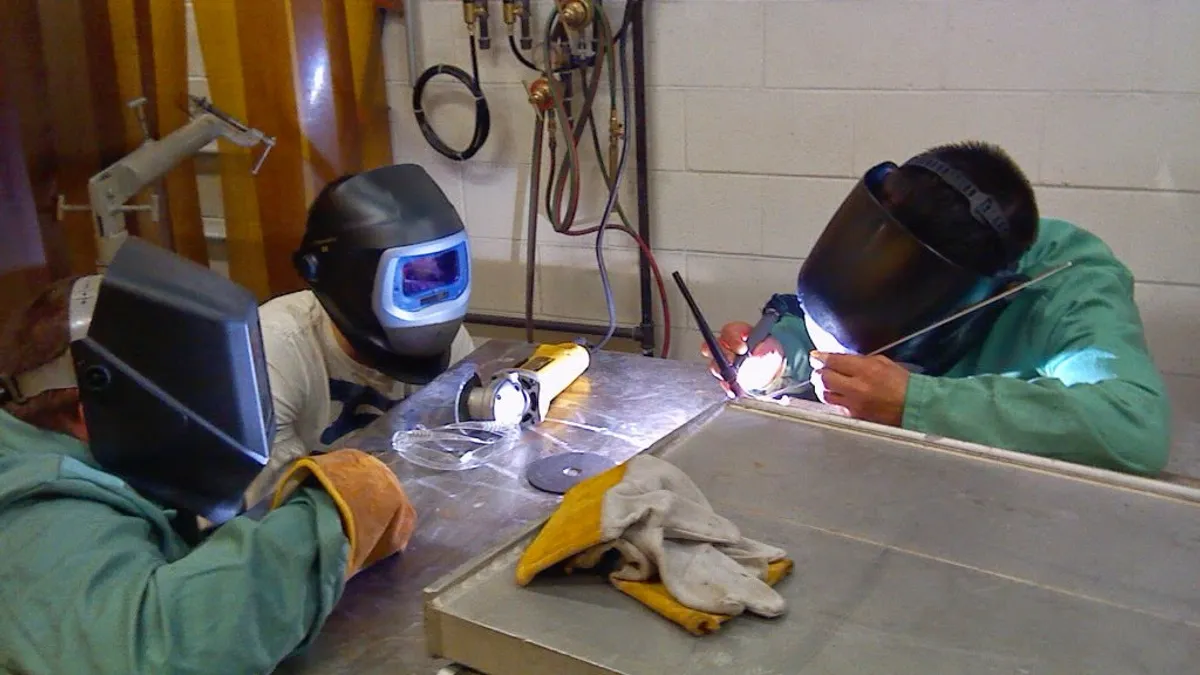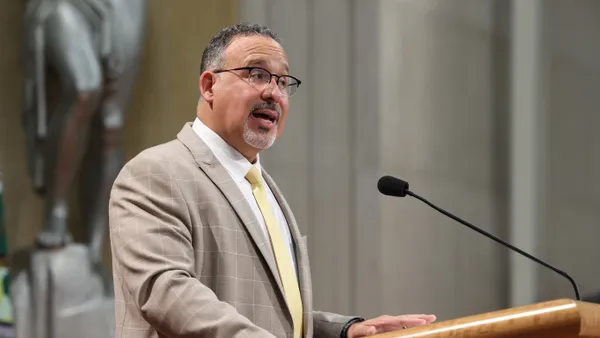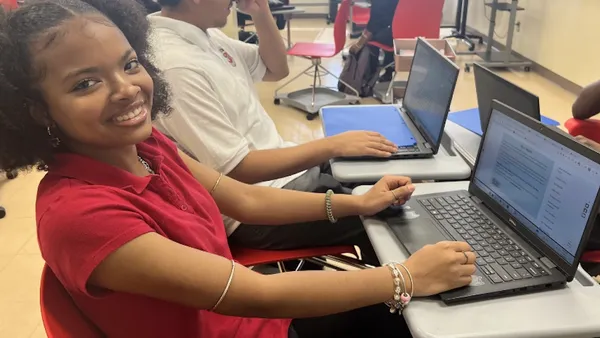Dive Brief:
- Colleges in southeastern Wisconsin have come together with business and community leaders to develop new collaborative strategies to prepare for a new $10 million plant nearby that will manufacture flat screen televisions and potentially employ 13,000.
- Representatives from the region’s three technical colleges and the University of Wisconsin-Milwaukee, UW-Parkside, Marquette University and Carthage College are preparing for the Foxconn plant in three ways: with program innovation, growth based on the firm’s needs and better connecting employers with graduates, according to an article in BizTimes, a Milwaukee business magazine.
- The Higher Education Regional Alliance (HERA) hopes to develop communications structures too, one official noted, which will benefit colleges by giving them information about industry needs, and companies, which otherwise might have to connect with dozens of individual interests.
Dive Insight:
HERA officials say their first goal is to increase college completion, noting that in the Milwaukee area graduation rates are about 37%, while they are at 48% statewide and nearly 60% in nearby Canada.
They also hope to speed up student preparation, which might involve dual enrollment programs, internships even earlier in high school and articulation agreements between the region’s colleges. Officials also said HERA will allow them to will better coordinate their institutions' offerings.
In a similar regional effort involving higher education in the Greenville, N.C. area in eastern North Carolina, three community colleges have been working with the Carolinas Gateway Partnership to train and retrain workers in a region where unemployment is higher than state and national averages, but companies complain they often cannot find qualified employees. The organization brings educators and business and community leaders together to find ways to increase communication and share information.
Meanwhile, in New York City, York College in the City University of New York system works through its Office of Economic and Workforce Development to improve the pipeline of its students into the area economy and offer its students experiential learning opportunities by working on a panel with employers.
A steady stream of reports from the business community has suggested that colleges need to do a better job of training workers for jobs that are available now and in the future.
K-12 schools are also adjusting. High schools in Indiana are reworking graduation requirements – potentially dropping courses such as Algebra 2 – to allow students to gain workforce skills. New York, North Carolina, Georgia and Minnesota also have developed work-based study programs with new requirements for students who are seeking an alternative graduation pathway. High school students say they want more opportunity to gain such skills, and new reports show the business community agrees.














